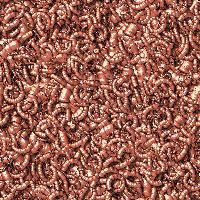Parasite Frequently asked Questions
 Find answers to some of the most common Parasite Questions. If your questions are not answered here, you can contact us and we might be able to help.
Find answers to some of the most common Parasite Questions. If your questions are not answered here, you can contact us and we might be able to help.
How can I prevent infection?
There are many things you can do to help prevent infection:
- Practice good personal hygiene -- wash hands and avoid contact with fecal matter.
- Don' t eat uncooked or unwashed fruits and vegetables.
- Stay away from mosquito or fly-infested areas; don' t drink unfiltered water; and don' t touch the soil in areas where roundworm infections are common.
- Wear protective clothing, and use insect repellant.
- Cook or freeze meat thoroughly.
- Keep children away from pet feces.
- Ask a veterinarian about deworming pets.
- Public health measures include improving general sanitation, especially sewage disposal, and reducing mosquito and fly populations.
What else can I do to lower the chances of becoming infected?
Basically everything that is good for your immunesystem will help lower the chances of becoming infected:
- Eat bitter and spicy foods, such as those containing turmeric (curries), cayenne peppers, green chilies, olives, figs, garlic, and ginger.
- Drink warm teas that contain spices such as cardamom, clove and cinnamon.
- Eat more dark leafy greens (such as spinach and kale) and sea vegetables.
- Eat antioxidant foods, including fruits (such as blueberries, cherries, and tomatoes) and vegetables (such as squash and bell peppers).
- Avoid refined foods, such as white breads, pastas, and especially sugar.
- Eat fewer meats, and more cold-water fish, tofu (soy, if no allergy) or beans for protein. Stay away from pork and other meats from carnivorous animals.
- Use healthy oils in foods, such as olive oil or vegetable oil.
- Avoid caffeine, alcohol, and tobacco.
- Drink 6 - 8 glasses of filtered water daily.
- Exercise at least 30 minutes daily, five days a week.
- Take a multivitamin daily, containing the antioxidant vitamins A, C, E, the B-complex vitamins, and trace minerals such as magnesium, calcium, zinc, and selenium.
What are the risk factors for infection?
- Living in or visiting a warm, tropical climate
- Poor sanitation
- Poor personal hygiene
- Crowded conditions, such as day care or institutional settings
- Weakened immune system
- Malnutrition
- Eating undercooked meat
- Eating dirt or clay -- children tend to become infected this way
- Contact with animal feces
- Multiple insect bites
I'm a raw foodist, I don't cook my food. What can i do to prevent ingesting eggs?
The good news is that as a raw foodist your immunesystem should be very strong which is the first defence against parasites. For you the most important thing is to wash all your fruit and vegetable thoroughly, preferably with a hydrogen peroxide solution. Incorporate anti parasitic herbs like wormwood in your diet.
I can't swallow capsules, what else can I do?
You can open the capsules and mix the content with some bananas. But beware they are very bitter.
The other option is a tincture which unfortunatley in most cases does have alcohol and can get it bit much if you have to take it for a long time.
I tried everything, but I can't get rid of my parasites
Two questions you have to ask yourself.
1) Is it really parasites that is your problem?
A
are you having ongoing tests that confirm that it is a parasite and which parasite exactly it is? If you have parasite symptoms, it does not mean that you have parasites. There are a lot of other illnesses that have the same symptoms. You have to make sure that you are really dealing with a parasite.
2) Where is the reinfection coming from?
If you do everything including the ozonating and you still have the parasites you are getting reinfected somewhere. In this case you have to change your environment (move), get rid of your pets (at least for 6 month), make sure everybody you have close contact with is also on the program and work on your diet and immunesystem.
How long will it take for my digestive system to heal?
If your digestive system has suffered damage as a result of parasites and/or gluten sensitivity, it will take three to six months to recover on a gluten-free diet. In some cases, the timescale may be even longer, emphasising the importance of remaining parasite and gluten-free.
